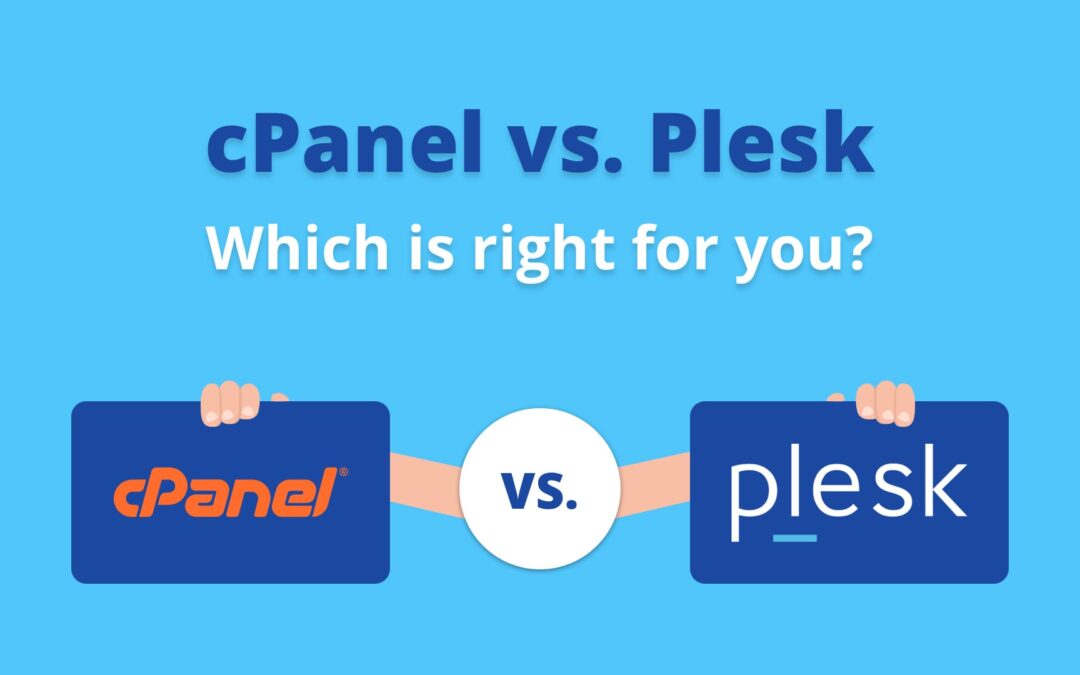Choosing the right web hosting control panel is a crucial decision for website owners and administrators. Two of the most popular options in the market are Plesk and cPanel, each offering a range of features and functionalities. In this blog post, we’ll compare Plesk and cPanel to help you make an informed decision on the best web host control panel for your needs.
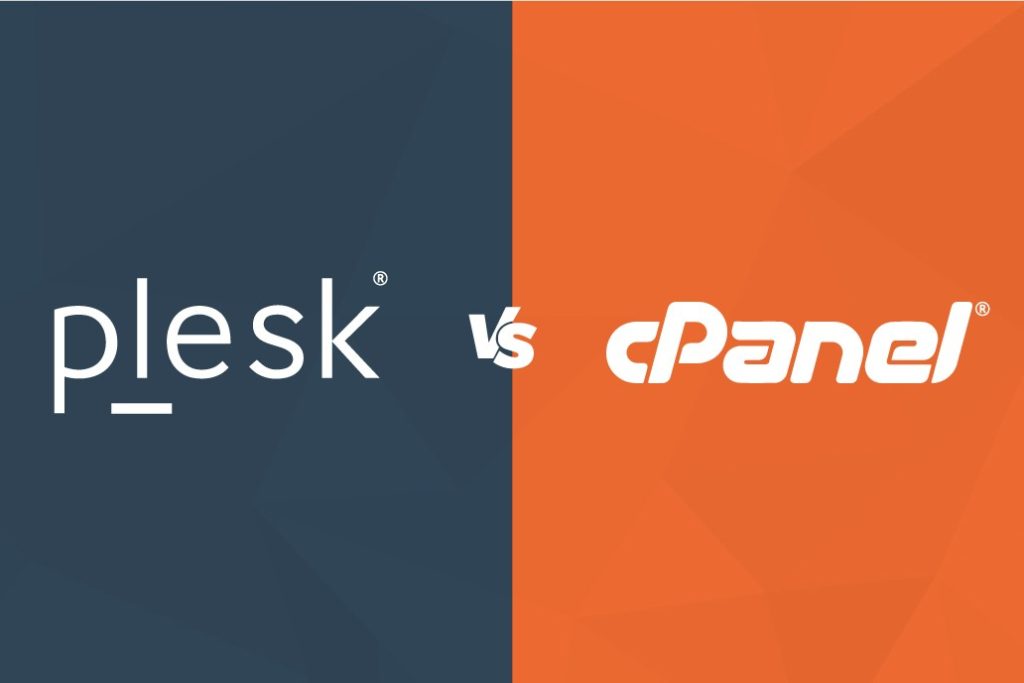
Table of Contents
What is a Control Panel
A control panel in the context of web hosting refers to a graphical user interface (GUI) or web-based application that allows users to manage various aspects of their hosting environment and website. It provides a centralized platform for users, typically website owners, administrators, and developers, to perform tasks related to server management, website configuration, and other hosting-related activities.
What is Plesk
Plesk is a web hosting control panel that provides a user-friendly interface for managing various aspects of web hosting environments. It is designed to simplify the management of websites, domains, emails, databases, and other hosting-related services. Plesk supports both Linux and Windows servers, offering versatility for users with different hosting preferences.

Key features of Plesk
Plesk is a comprehensive web hosting control panel that offers a range of features to simplify the management of hosting environments. Here are some key features of Plesk:
- User Interface: It is known for its clean and modern interface, making it accessible to users with varying levels of technical expertise. The intuitive design allows users to navigate through different sections easily.
- Server Management: Plesk enables users to manage server resources, configure security settings, and install software applications. It provides a centralized platform for administrators to handle server-level tasks.
- Website and Domain Management: Users can add, modify, or remove domains and websites through Plesk. The control panel offers tools for configuring domain settings, managing DNS records, and handling website files.
- Database Management: Plesk supports various database management systems, allowing users to create, modify, and manage databases associated with their websites. It also includes tools for database backups and restoration.
- Security Features: Plesk includes security features such as SSL certificate management, firewalls, and access controls to enhance the overall security of the hosting environment.
- Email Configuration: Users can set up and manage email accounts, configure mail server settings, and implement email forwarding within Plesk. It provides a convenient interface for handling email-related tasks.
Pros and Cons of Using Plesk
It is a widely used web hosting control panel, offering a range of features for server and website management. Like any software solution, Plesk has its advantages and disadvantages. Here are the pros and cons of using Plesk:
Pros:
- It is known for its intuitive and user-friendly interface, making it accessible to users with varying levels of technical expertise.
- It supports both Linux and Windows server environments, providing flexibility for users with different hosting preferences.
- The control panel covers areas such as domain management, database administration, security settings, and more.
- Users can easily add additional functionalities and third-party applications to meet specific requirements.
- Plesk supports multiple languages, making it accessible to users around the world.
Cons:
- It offers various licensing options, some users may find it relatively more expensive compared to other control panels, especially for smaller-scale installations.
- Some users report that Plesk may consume more system resources compared to other control panels. This could potentially impact server performance in resource-constrained environments.
- Although Plesk is designed to be user-friendly, new users may still experience a learning curve, especially if they are unfamiliar with web hosting control panels.
- While Plesk supports extensions and integrations, the process of customizing and extending functionalities may be perceived as more complex compared to some other control panels.
What is cPanel
cPanel is a widely-used web hosting control panel that provides a graphical user interface (GUI) and automation tools to simplify the process of managing web hosting accounts. Developed by cPanel, LLC, it is designed to make website and server management accessible to users with varying levels of technical expertise. cPanel is particularly popular among hosting providers, system administrators, and website owners due to its user-friendly interface and comprehensive feature set.
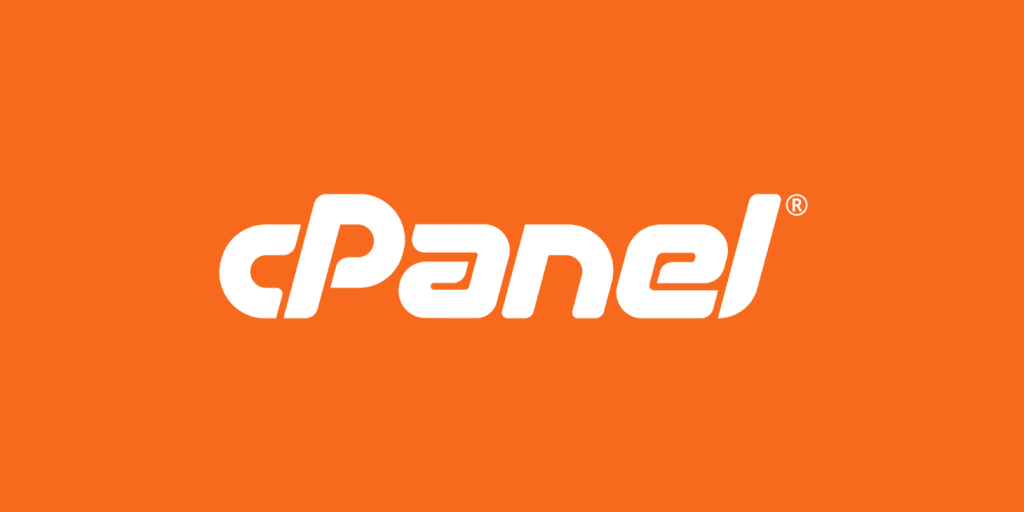
Key features of cPanel
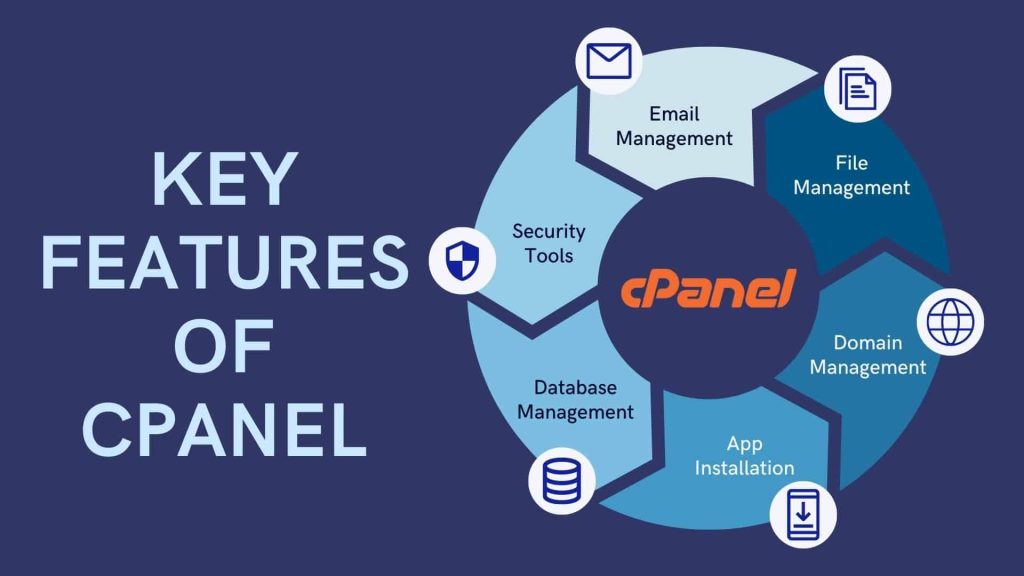
- User-Friendly Interface:
- cPanel is known for its straightforward and intuitive interface, making it accessible to both beginners and experienced users.
- The organized layout and navigation menus contribute to an easy-to-use experience.
- Server Management:
- cPanel provides tools for managing server resources, including CPU, memory, and disk space.
- Administrators can configure server settings and perform various server-level tasks through the control panel.
- Website and Domain Management:
- Users can add, modify, or remove domains and websites using cPanel.
- It offers tools for configuring domain settings, managing DNS records, and handling website files.
- Database Management:
- cPanel supports various database management systems, including MySQL and PostgreSQL.
- Users can create, modify, and manage databases associated with their websites.
- Security Features:
- cPanel includes security features such as SSL certificate management, firewalls, and access controls to enhance the overall security of the hosting environment.
- Security updates are regularly provided to address vulnerabilities.
- Email Configuration:
- Users can set up and manage email accounts associated with their domains.
- cPanel includes tools for configuring mail server settings, managing spam filters, and implementing email forwarding.
- Backup and Restore:
- cPanel offers tools for creating backups of websites, databases, and server configurations.
- Scheduled backups can be configured to ensure regular data protection and facilitate disaster recovery.
Pros and Cons of Using cPanel

Pros:
- User-Friendly Interface:
- cPanel is known for its intuitive and user-friendly interface, making it accessible to users with varying levels of technical expertise.
- The organized layout and straightforward navigation menus contribute to an easy-to-use experience.
- Versatility:
- cPanel supports a wide range of hosting environments and is compatible with Linux servers.
- It caters to the needs of various users, from individual website owners to hosting providers managing multiple accounts.
- Comprehensive Feature Set:
- cPanel offers a comprehensive set of features for server management, website configuration, and other hosting-related tasks.
- The control panel covers areas such as domain management, database administration, security settings, and more.
- Security Features:
- cPanel includes robust security features, such as SSL certificate management, firewalls, and access controls.
- Regular security updates are provided to address vulnerabilities and enhance the overall security of the hosting environment.
- Email Configuration:
- Users can easily set up and manage email accounts associated with their domains.
- cPanel includes tools for configuring mail server settings, managing spam filters, and implementing email forwarding.
Cons:
- Cost:
- cPanel is not free, and hosting providers may pass on the licensing costs to users. Some users might find it relatively more expensive compared to other control panels.
- Resource Usage:
- Some users report that cPanel may consume significant system resources, potentially impacting server performance in resource-constrained environments.
- Learning Curve for Advanced Features:
- While cPanel is user-friendly, mastering advanced features may require some learning, especially for users who are new to web hosting control panels.
- Limited Windows Support:
- cPanel is primarily designed for Linux servers, and its support for Windows environments is limited. Users with Windows servers might need to explore alternative control panels.
- Interface Aesthetics:
- The visual design and aesthetics of the interface may be subjective, and some users might prefer the look and feel of other control panels.
Plesk vs cPanel: How Are They Different?
Plesk and cPanel are two of the most popular web hosting control panels, each with its own set of features and characteristics. Here’s a comparison of Plesk vs. cPanel, highlighting their differences:
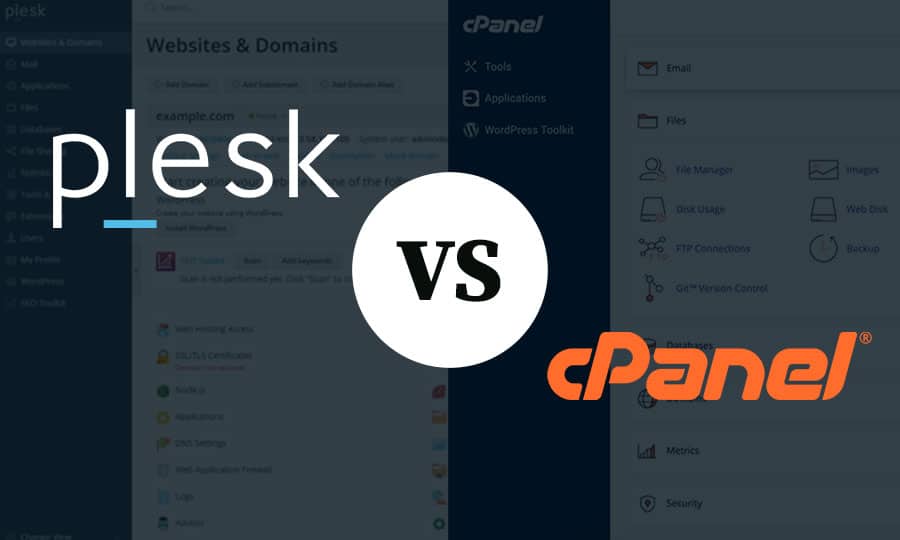
- User Interface:
- Plesk: Known for its modern and clean interface. Plesk has a user-friendly design that appeals to both beginners and experienced users.
- cPanel: Features a more traditional interface that some users find cluttered. However, it is intuitive and widely used.
- Compatibility:
- Plesk: Supports both Linux and Windows server environments, offering versatility for users with different hosting preferences.
- cPanel: Primarily designed for Linux servers. While some support for Windows is available, it may be more limited compared to Plesk.
- Server Management:
- Plesk: Provides robust server management tools, allowing administrators to handle various server-level tasks efficiently.
- cPanel: Offers comprehensive server management features, including resource allocation and server configuration.
- Features and Functionality:
- Plesk: Known for a broad range of extensions and integrations, making it suitable for diverse applications. Plesk emphasizes a comprehensive set of tools for website and server management.
- cPanel: Known for stability and reliability, providing a comprehensive set of tools for website management. cPanel has a strong focus on simplicity and ease of use.
- Security Features:
- Plesk: Praised for its robust security measures, including SSL certificate management, firewalls, and easy implementation of advanced security protocols.
- cPanel: Offers security features such as SSL certificate management and firewalls. Regular security updates are provided to address vulnerabilities.
- Resource Usage:
- Plesk: Generally efficient in resource management, making it suitable for optimal performance even in resource-constrained environments.
- cPanel: While generally performing well, some users report that cPanel may be slightly heavier on resource usage.
- Cost:
- Plesk: Often considered more cost-effective for smaller installations, making it an attractive choice for individuals and small businesses.
- cPanel: The licensing model can be more expensive, particularly for larger-scale hosting environments. Some hosting providers include cPanel in their hosting plans, mitigating individual licensing costs.
- Extensions and Integrations:
- Plesk: Known for supporting a wide range of extensions and integrations, providing flexibility for users to customize their hosting environment.
- cPanel: Also supports various third-party integrations but may be perceived as less extensible compared to Plesk.
- Backup and Restore:
- Plesk: Provides efficient tools for creating backups of websites, databases, and server configurations.
- cPanel: Offers robust backup and restore functionalities, contributing to data protection and disaster recovery.
- Market Share:
- Plesk: Has a significant market share, especially among hosting providers that offer both Windows and Linux hosting solutions.
- cPanel: Historically one of the most widely used control panels, particularly in the shared hosting market.
Conclusion
Ultimately, the choice between Plesk and cPanel depends on your specific needs, preferences, and the type of hosting environment you are working with. Both control panels have their strengths and weaknesses, so it’s essential to evaluate your requirements and conduct a thorough comparison before making a decision. Whether you prioritize user interface design, feature diversity, or cost-effectiveness, understanding the nuances of Plesk and cPanel will help you find the best web host control panel for your unique situation.

